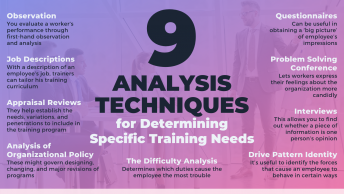According to research conducted by management experts of all school of thoughts, 15% of the reason you get and keep a job is determined by your technical knowledge, skills and expertise.
What about the other 85% ?
85% of the reason you move ahead in your job is related to your people knowledge and people skills.
It goes without any shadow of doubt that, as a manager/supervisor, you must become aware of the critical need for a specialised knowledge on how you can manager yourself and your subordinates for peak performance. If you study professional supervisors / managers in various industries, you will notice a common problem in many (if not all) of the different situations men and women are facing ……. and the common denominator in all problems is always the same: PEOPLE.
Managing people starts with self-management, and it is one of your top-most priorities if you really want to be successful in your supervisory/managerial role. According to Tom Peter, author of the best-selling book ‘A Passion for Excellence’, the real challenge is retraining managers, not retraining workers. With this in mind, the sole objective of this article is to develop excellence in you, and to provide you with fundamentals and motivation to professionally develop and utilise your team mates.
The foundation for developing yourself and others is wrapped up in the very word M.A.N.A.G.E.R: Motivator, Activator, Negotiator, Achiever, Goal-setter, Educator or Evaluator, Risk Taker (that is, Courageous).
The above is a foundational truth in managing yourself and your team members. It highlights a principle and not a tactic. As a tactic, this definition would be ineffective; but as a principle, the concept works because it makes others want your supervision/management.
All professional supervisor/managers know well that when they put people first, their effectiveness and efficiency multiply. Lee Iacoccoa, the past chairman who elevated the Chrysler Corp. from the rock-bottom fauire to one of the top ten auto leaders, remarked: My philosophy is that people make business; technology is a distant second.
Utilise All Your Strengths & Resources
You will agree that the basic and the simplest definition of management is ‘getting things done through people’.
The story of a teenager explains the point: a young, growing boy was trying his best to pull his bi-cycle out of the mud, but failed over and again. His father stood nearby and said to him: Son, why are you not using all your strengths and resources?. The little boy replied”: I’m using all my strengths and resources, dad!, whereupon his father lovingly told him that he was not at all using all his strengths and resources, because he had not asked him (his father) to help.
The moral of the story is that all successful managers/supervisors utilise their strengths and resources by identifying, developing and utilising the physical, mental, emotional and intellectual talents of their subordinates.
Undoubtedly, the greatest untapped natural resource and the most expensive one in terms of performance/reward ratio, is its people. Motivating staff to make their full contribution is the only and the fastest way that a manager/supervisor can professionally play his role. Exhaustive research proves that a majority of staff members just await someone to come along and set them on fire. Consequently, all managers and supervisors need to develop their ability to bring out the very best in their subordinates by :
• learning what makes staff tick
• by understanding the staff’s ‘ buying motives and hot buttons ‘
And then they transfer their own aspirations and enthusiasm to those who follow their footsteps. This demands them to be an excellent salesperson, an ignitor who gets job done by working with and through staff. Besides, he/she should also have a proper understanding of the idiosyncracies that make staff members different from one another … and valuable to the organizatio.
Speed of the leader is the speed of the follower
Regardless of your department or division, the following self-analysis will enable you to explore your managerial/supervisory capabilities. By now you should be ready to go …… so fasten your seatbelts and grab your marking pen, because the following exercise will take you to an action-and-information journey you have ever undertaken !
Your Management / Supervisory Quotient
Ask Yourself the Following Questions Your Self-Test Score
High Low
1. I always listen to my team members more than
I talk to them, and I am open to their thoughts
and suggestions 1 2 3 4 5
2. I set short- and long-range goals, involve all
my team members in the goal-setting process,
and then organise a clear plan to reach them 1 2 3 4 5
3. I focus on planning, organising and motivating
my team players, and I don’t assign these tasks
to others 1 2 3 4 5
4. I delegate a project to help my team members
develop their skills and expertise, and I hold
them responsible for results 1 2 3 4 5
5. I always plan an agenda to find a solution to a
challenging project, and I openly and honestly
consider my workers’ ideas as a valuable input 1 2 3 4 5
6. I am able to keep control over all of my team
members without ever suppressing their self
esteem and self-motivation 1 2 3 4 5
7. I regularly spend time analysing reports to
identify my workers’ deficiencies and oppor –
tunities for improvement 1 2 3 4 5
8. I am able to increase the efficiency of my
department by understanding the motives and
needs of each team mate 1 2 3 4 5
9. I provide team spirit by encouraging my staff
to work together, and I always appreciate their
individual talents and abilities 1 2 3 4 5
10. I always ensure that my staff members have the
the required training, and know how to apply it
to their job 1 2 3 4 5
11. I impartially consider the opinions and needs
of all of my workers when resolving a conflict,
and I work hard to resolve it. 1 2 3 4 5
12. I always set and follow ground rules for the
office meeting, and I properly complete each
point before moving to the next one 1 2 3 4 5
13. I implement a change and then give my team
members time to adjust themselves to it 1 2 3 4 5
14. I can overcome any work pressure, enjoy making
tough decisions and have the desire to become
an outstanding leader 1 2 3 4 5
15. I am a visionary, believe in risk – taking and
always seek and accept bigger challenges 1 2 3 4 5












